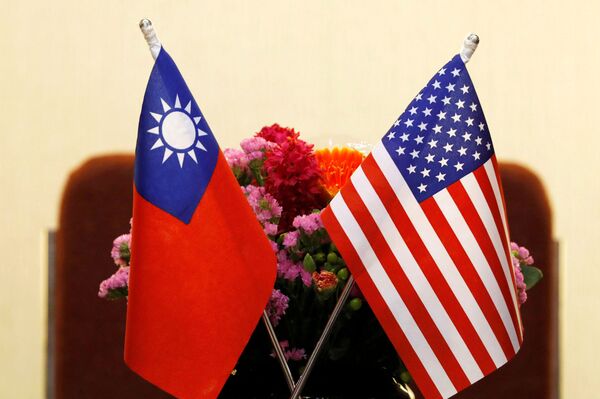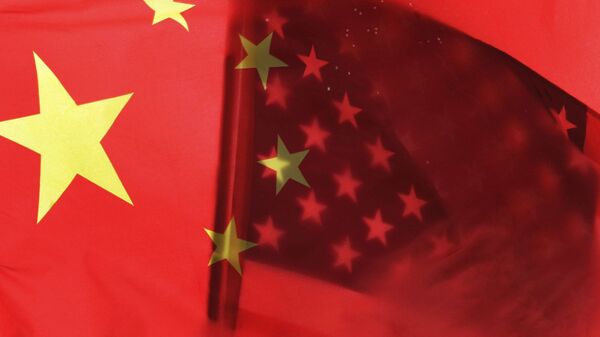China's foreign ministry has pledged to hit back against moves that undermine its "core interests" and interfere in its internal affairs, following US Secretary of State Mike Pompeo claiming that Taiwan “has not been a part of China”.
Speaking in Beijing on Friday, Chinese foreign ministry spokesman Wang Wenbin reiterated that the island province of Taiwan is an inalienable part of China and warned that Pompeo's comments would harm Sino-US relations.
“We solemnly tell Pompeo and his ilk, that any behaviour that undermines China’s core interests and interferes with China’s domestic affairs will be met with a resolute counterattack by China”, he said, without specifying as to how Beijing would respond.
During a radio interview on Thursday, Pompeo said that Taiwan has not been a part of China.
“That was recognised with the work that the Reagan administration did to lay out the policies that the United States has adhered to now for three-and-a-half decades”, he said.
The secretary of state claimed that both the Democratic and Republican parties have recognised Taiwan as separate from China for over 35 years and have agreed to defend Taiwan.
Joanne Ou, a spokeswoman for Taiwan's foreign ministry, thanked Pompeo for giving his support.
“The Republic of China on Taiwan is a sovereign, independent country, and not part of the People’s Republic of China. This is a fact and the current situation,” she said.

Taiwanese officials are set to travel to Washington next week to take part in economic talks, which has led to frustrations in Beijing.
Since 1972, the United States has adhered to the 'One China Policy' under which Washington "acknowledges that Chinese on either side of the Taiwan Strait maintain there is but one China and that Taiwan is a part of China. The United States does not challenge that position".
However, the contention falls under which government holds sovereignty over the agreed-upon singular territory of China. According to Taiwan's constitution, the Republic of China (RoC) holds sovereignty over the entirety of the Chinese mainland, despite only controlling the island province and surrounding territories.
The People's Republic of China, which controls the entire Chinese mainland, Macau, and Hong Kong, also claims sovereignty as the sole government of China and has recognition from the majority of countries, including the United States.
In 1949, the Republic of China government was ousted by the Communist Party-led revolution and fled to Taiwan near the end of the civil war.
The Communist Party founded the People’s Republic of China in Beijing while the RoC continued to claim legitimacy as the government, leading to the disputed situation today.



